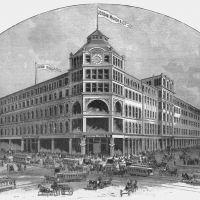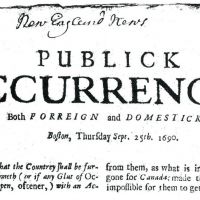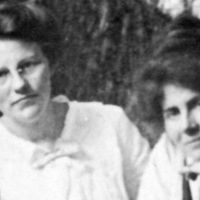March 4, 1872
Globe Publishes First Edition
Region:
Greater Boston
On this day in 1872, a brand-new newspaper hit the streets of Boston. Costing four cents, the Globe had twice the number of pages as most competitors for the same price. But even at a bargain price, the "semi-literary" paper with reports on Sunday church sermons, art exhibits, and new books attracted few readers. Within a year, only one of the six original investors remained— Eben Jordan, founder of the Jordan Marsh Department Store. Believing the paper could be a commercial success, he hired Charles H. Taylor to make it into one. With financial backing from Jordan and the ability to respond to changing trends, Taylor turned the paper around. By the 1890s, it had become the dominant paper in New England.









